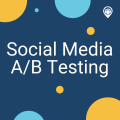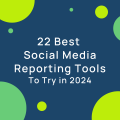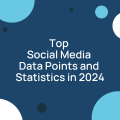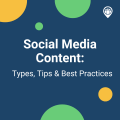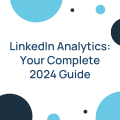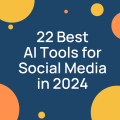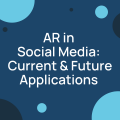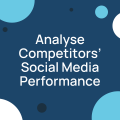Facebook Page Content To Be Reduced In News Feeds And 8 Things Your Brand Can Do About It
Tina Ahmed posted on 15 January 2018
Mark Zuckerberg shocked brands and social media managers around the world with this announcement: Facebook is making a major change and will further reduce public content (page posts from businesses, brands and media) from user’s news feeds.
Facebook has said that this update is not the same as the recent tests in six countries where all page content was moved from the news feed. Page posts will still appear but there may be fewer of them. It’s still useful to understand what kind of drops pages from the test countries experienced as we wouldn’t be surprised if this what Facebook’s next step for the rest of the world too.
As we’ve shown in our monthly studies, organic Facebook page growth, reach and engagement have decreased significantly over the last few years but this test landed a further blow to the pages. Since October 19th, the pages in the six test countries have seen the total engagement drop between 30% and 53% as our data shows.
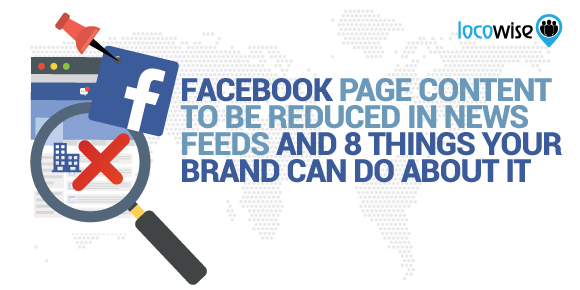
| Country | # of Pages | Total posts in the period | Engagements per post before | Engagements per post after | Drop |
|---|---|---|---|---|---|
| Slovakia | 415 | 80,128 | 256 | 121 | 53% |
| Sri Lanka | 805 | 158,617 | 930 | 497 | 47% |
| Serbia | 804 | 301,272 | 385 | 193 | 50% |
| Bolivia | 982 | 91,616 | 318 | 223 | 30% |
| Guatemala | 728 | 151,160 | 767 | 488 | 36% |
| Cambodia | 534 | 127,917 | 2,508 | 1,344 | 46% |
Let’s take a deeper look at Facebook’s latest announcement.
More friends posts and fewer page posts
There’s more page content than posts from family and friends on Facebook and it’s crowding out the personal moments that make people connect with each other. The research shows that passively reading or watching content in social media may not be as good for people’s well-being as actively engaging with people we care about.
Facebook is changing its focus from helping people find relevant content to helping people “have more meaningful social interactions”. And this means much less page content in news feeds.
According to Zuckerberg “it will take months for this new focus to make its way through all our products” but the first changes are in the news feed “where you can expect to see more from your friends, family and groups” and fewer “posts from businesses, brands, and media”. He also announced that he expects people’s time spent on Facebook and some engagement to go down.
What can I expect to see with my Facebook performance after this major change?
More details were shared in this post. Facebook will “prioritize posts that spark conversations and meaningful interactions between people”. They “will predict which posts you might want to interact with your friends about, and show these posts higher in feed“. Posts “that inspire back-and-forth discussion in the comments and posts that you might want to share and react to – whether that’s a post from a friend seeking advice, a friend asking for recommendations for a trip, or a news article or video prompting lots of discussion“.
Pages “may see their reach, video watch time and referral traffic decrease. The impact will vary from Page to Page, driven by factors including the type of content they produce and how people interact with it. Pages making posts that people generally don’t react to or comment on could see the biggest decreases in distribution. Pages whose posts prompt conversations between friends will see less of an effect.”
So to recap, in 2018 you can expect:
1. Less organic audience growth on your Facebook page
2. Less organic reach on the content that you post to your Facebook page
3. Less engagement with the content that you post to your Facebook page
4. Fewer clicks to your website from the content that you post to your Facebook page
5. Increased ads competition and ad cost with the rise in demand of brands wanting to pay to promote their content
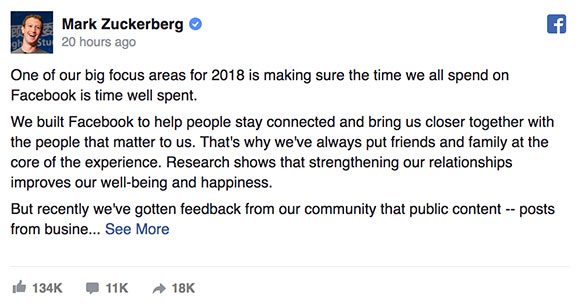
Image: Facebook
What should my brand do about the death of organic Facebook page reach?
It’s still not all lost in the short term. There are some things you can try and do to keep up your Facebook presence:
● Ask your audience to choose “See First in News Feed” preference to make sure they always see posts from your page. They need to click “Following” near the cover photo of your page and in “In Your News Feed” select “See First”. Just like this:
● Run more paid advertising. This is the only surefire way to get reach and engagement on Facebook but you do need to be on top of this game in order not to waste a lot of money. With this major change, we expect even more brands to turn to paid ads which will result in increased competition and a higher ad cost.
● Start a Facebook Group about your industry or your topic. In Groups, people often interact around public content such as with “tight-knit communities around TV shows and sports teams”. If you’re just starting in 2018, you create a Facebook Group for your brand and not a Facebook Page. Check out our beginner’s guide to Facebook Groups for brands.
● Post more quality content on your website or blog that people share themselves. The content that you post on your website or your blog needs to be amazing. It needs to answer questions people have and it needs to be so good that they cannot but share it with their family and friends. The significant Facebook reach in 2018 for your brand might be happening on your website content that people share directly without even encountering your Facebook page in the process.
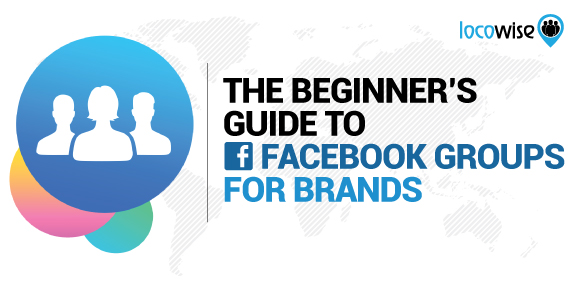
● Post content that encourages meaningful interactions between people. What posts does your audience comment on the most? Look into your data and discover the trends on post format, topic, day and time to post.
● Live video might be your best bet as the content format. According to Facebook “live videos often lead to discussion among viewers on Facebook – in fact, live videos on average get six times as many interactions as regular videos. Many creators who post videos on Facebook prompt discussion among their followers, as do posts from celebrities.” Experiment with some live broadcasts and see what results you get. Check out our 20 inspiring live broadcast ideas you can do for your brand.
● Find alternative ways to own your audience. Your Facebook page likes are not really your audience. You cannot get in touch with them when you want and if you do you need to pay to reach them every time. Find alternative ways to own your audience. Are there social platforms that are better suited for you? How about the messenger apps? And what about that traditional email list? If someone signs up for your email list, you can reach them for free whenever you want without needing to worry about what Facebook (or other platforms) are up to.
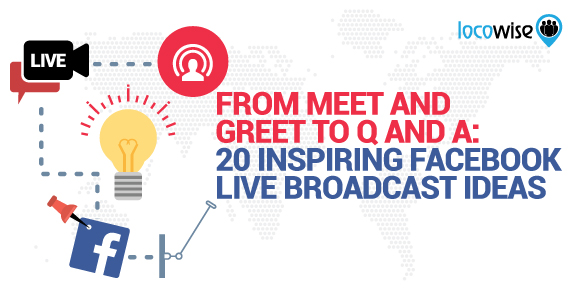
● Taking advantage of all the data Facebook provides you with is becoming even more important in order to drive return on investment. The data can help you figure out what content works and what content you should stop spending your time on. It can help you identify the strategies your competitors are successful with. It can help you discover influencers to collaborate with. It can help you run more efficient ads that save you lots of money. Locowise is your social media performance measurement tool and you can get a free trial right now.

